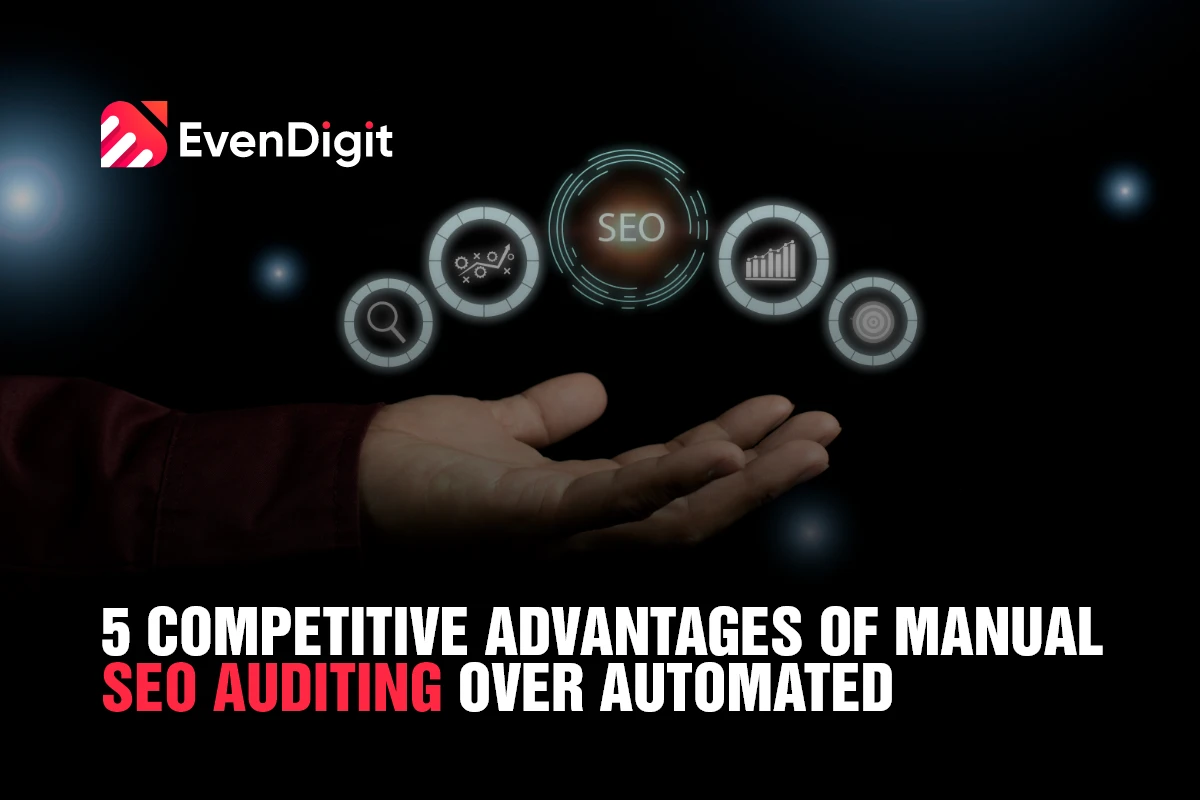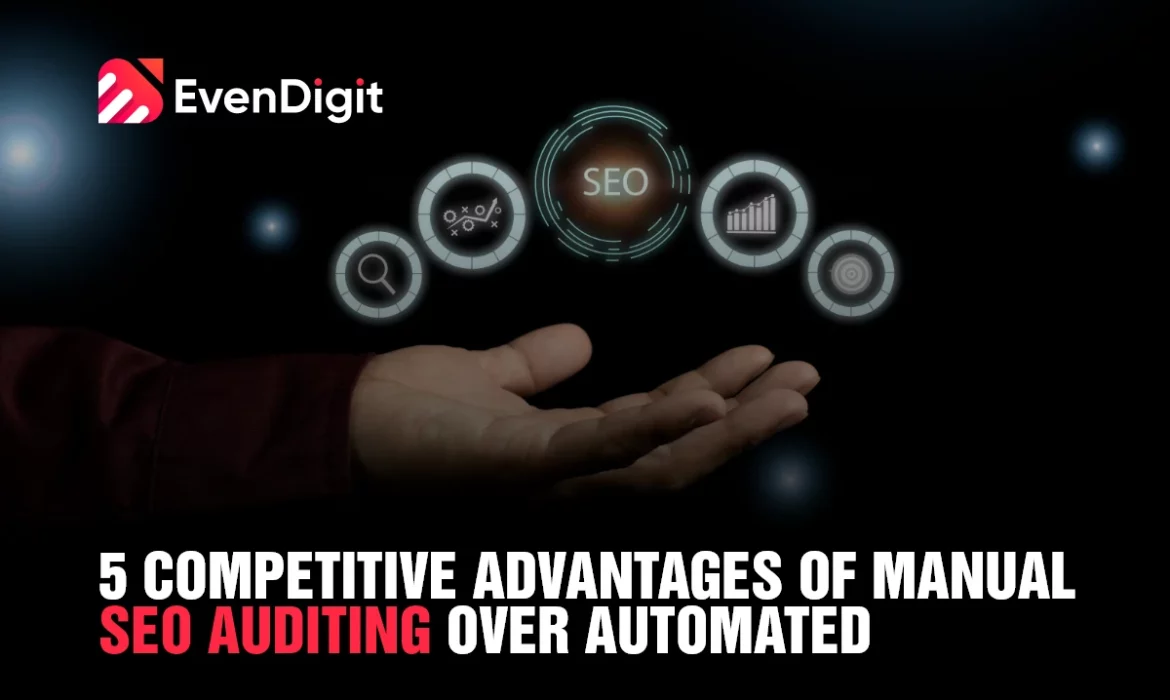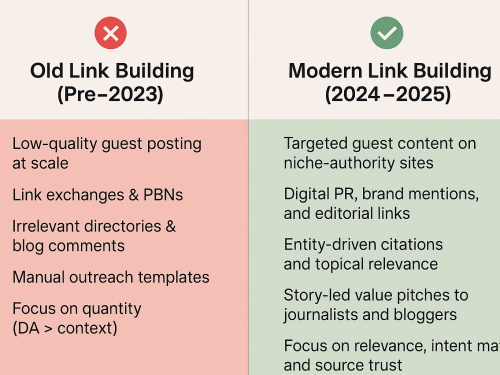
When we get sick, a doctor runs some tests and gets the diagnosis in just a few minutes. With reports in hand, the prognosis gets easier and quicker. Treatment can get a quick start, and the confusion and chaos can be reduced to a minimum.
Similarly, when it comes to SEO, the most general approach is relying on the report generated through an automated tool. Most Digital marketing agencies offer and do a tool-based SEO friendliness analysis that shows the numbers related to each parameter. Looking at the poorly doing numbers, an SEO expert makes the decision to fix issues on a website.
However, often a human touch is needed to get a better analysis of how visitors will perceive the website, and then the SEO can be done in a much better way.
If you are feeling a dilemma about which is better – manual SEO audit or automatic SEO audit, allow us to pass some crucial information that will enable you in better decision making.
Let’s begin with the basics.
What is an SEO Audit?
The first step in developing a marketing strategy is conducting an SEO audit to determine whether your site is compliant with search engine updates. SEO audits help you assess how well your website performs on the Internet and whether it follows best SEO practices. By doing so, you will be able to identify the weaknesses of your site and develop a marketing strategy that is effective.
It broadly includes different aspects of website SEO audit, such as:
- On-page SEO issues
- Content gaps
- Non-performing keywords
- Issues with page layout
- Possible off-site problems
Let’s understand the importance of SEO audits.
How do SEO audit benefits?
When your website is slow to load, it is likely that visitors to your site will order products from another site, which reflects poorly on your company’s image. An SEO audit reveals such underlying problems that prevent organic traffic to your site.
Difference between automated SEO audit and manual SEO audit
In an automatic SEO audit, a predefined set of rules governs the process. The modus operandi is almost identical, with only a few minor variations. Market-available SEO tools are used to conduct the audit. Automated audits can be used to evaluate multiple SEO metrics simultaneously, resulting in customized reports.
The manual SEO audit, on the other hand, requires SEO specialists. In addition to providing a broad range of digital marketing opportunities, the manual auditing process also allows you to choose the order in which the tasks should be completed and includes detailed explanations of the actions performed.
1. Advantages of Manual SEO
Manual SEO auditing is time-consuming, but it gives you total control over your SEO strategy. It allows you to see whether your SEO team followed the strategy as planned and whether it was successful.
The off-page backlinks can be selected manually, which is an advantage. SEO tools often block links to sites that appear to be spam but are high-quality links. Manual SEO audits fix this problem.
2. Disadvantages of Manual SEO
When website owners own multiple websites, they cannot perform SEO simultaneously for each one. Even preparing a report with a few mistakes takes several days.
Despite the fact that manual SEO may seem inexpensive, it takes an expert to work on identifying the problems and preparing suggestions that are suitable for a business.
It is possible to miss updates if you manually make them, leading to penalties. The software of automated tools incorporates these changes and performs accordingly.
3. Advantages of Automated SEO
There are many free tools on the market that can be used to conduct a full or partial SEO audit. Even if you use a premium paid service, tools will cost less than novice SEO executives.
Using automation tools, you can handle multiple sites at once, identify broken links, analyze competitors, determine keyword density, meta content, and different tags on large websites at the same time. A variety of crucial metrics can be tracked in real-time using automation.
4. Disadvantages of Automated SEO
In tool-based SEO, data is fed into it to perform its functions. A tool may not be able to detect and block spam sites. Your tool may create low-quality backlinks if you feed it incorrect information. If all of these things happen, search engines will penalize you.
Rather than focusing on quality, automated SEO focuses on quantity.
How often should you rely on an automated SEO audit?
Owners of multiple sites will find the reports generated by automated SEO audits helpful. In short, you can identify issues that accumulate over time through the insights it provides. The reports you receive will be delivered to your inbox weekly, biweekly, or monthly, depending on what you choose. You can prepare the groundwork for manual SEO more efficiently if you are aware of these issues in advance.
When do you need to perform a manual SEO audit?
An SEO expert conducts a manual audit before preparing an SEO strategy for any site to improve its position on SERPs. This audit provides insight into many crucial aspects of the site. When you have a detailed understanding of why the site has these flaws and the changes it has endured over the years, you can devise a strategy to troubleshoot them. Whenever you plan to redesign your site or migrate to a new one, you can keep track of the content that helped you gain traffic and leads.
Let’s dig deeper into the SEO audit benefits done manually over automated SEO:
1. Domain Duplicity
You may have noticed that you can access XYZ Ltd.’s website at www.xyz.ltd.com, but each site has a different URL. Site owners are forced to create multiple URL versions, including HTTPS and HTTP, as a result of poor SEO practices. Consequently, users are unable to identify the original version, search engine spiders cannot index your page, and you are unable to rank for different keywords due to this. The response code ‘200OK’ and the status code ‘301 moved permanently’ can help you identify and resolve such issues manually.
2. Meeting The Industry Standards
Technology is one of the fastest-evolving fields. It is impossible to comply with all the policies and algorithms while still producing work that appeals to people. Any business strives to comply with all of these policies, but experts say it is practically impossible. Hence, human involvement becomes crucial. Only with human touch can you select or skip compliance with algorithms and policies laid out for websites.
3. UI/UX Efficacy
There’s no thumb rule about how many CTAs are too much or likely to bring more conversions. Automated SEO audits rely upon a set of rules for auditing and analyzing a website. The effectiveness of the UI for optimal UX won’t be achieved without human involvement. Poor user experience can directly affect your sales/leads.
Manually auditing your website will also determine whether it has redundant information, such as a lengthy contact form or unclear navigation.
4. Optimization Recommendations
With a manual audit, you can identify various technical prospects, such as an XML sitemap, internal links, mobile view, footer information, content, navigation, etc. An automated tool, however, can only spot errors, not suggest how to fix them. Only a human can provide optimization recommendations for your website based on an in-depth manual analysis.
5. Website indexing
For a website to rank on SERPs, search engines index all its pages, but not all of them need to be indexed. Manual audits help identify which pages should be indexed. Over pages with trivial information, such as login, forgotten password, etc., pages with more important information should be indexed.
Often used to determine whether pages are indexed, it is a web page audit tool. In an automated audit, crawlers cannot index pages like ‘checkout’, ‘thank you, or ‘add to cart’ that follow the customer’s journey. Such suggestions can only be made in a manual audit since crawlers cannot index these pages if they are not tagged.
Also Read: Top 25 SEO Tools to Check Your Website Performance
Conclusion: an audit strategy involving both manual and automated can help go a long way…
Even though manual audits are superior, you should consider incorporating both manual and automated audits when developing your SEO strategy. You get a balance of cost and time, and hence you can relax back seeing your SEO strategy finally getting a great start.
Choosing the right type of audit for your business is crucial. Consider both short- and long-term goals. Low-grade technical SEO audits won’t help you reach your long-term goals.
EvenDigit
EvenDigit is an award-winning Digital Marketing agency, a brand owned by Softude (formerly Systematix Infotech) – A CMMI Level 5 Company. Softude creates leading-edge digital transformation solutions to help domain-leading businesses and innovative startups deliver to excel.
We are a team of 70+ enthusiastic millennials who are experienced, result-driven, and hard-wired digital marketers, and that collectively makes us EvenDigit. Read More




